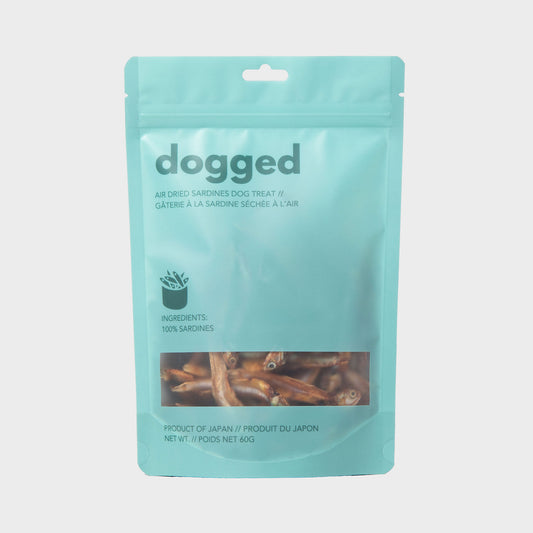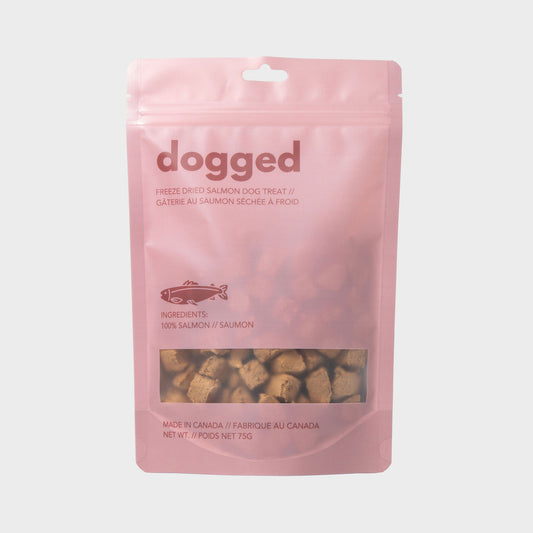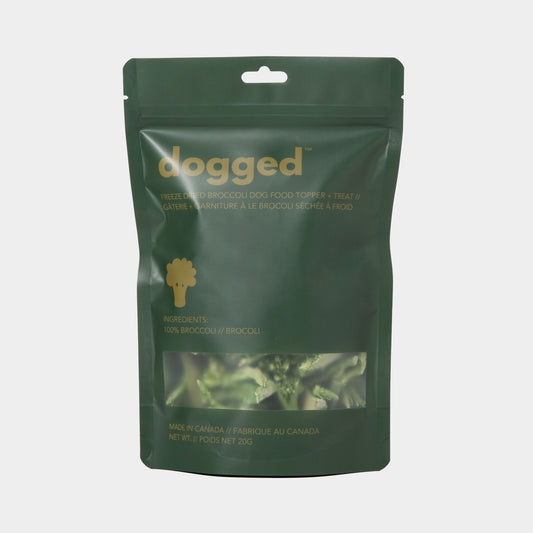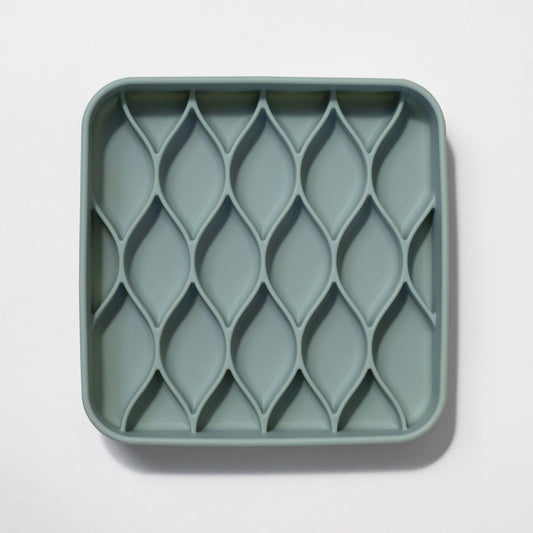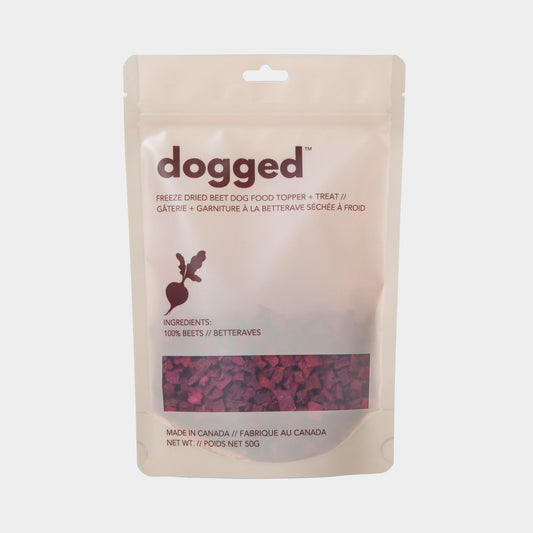
Quercetin for Dogs with Allergies: A Natural Solution for Inflammation and Seasonal Allergies
At dogged, we're all about helping you find the best natural solutions to keep your furry friend happy and healthy. One such solution that’s gaining attention in the pet world is quercetin—a powerful antioxidant that could be just what your dog needs to combat inflammation and seasonal allergies.
What is Quercetin?
Quercetin is a flavonoid, a type of plant pigment found in many fruits, vegetables, and grains. Known for its antioxidant, anti-inflammatory, and antihistamine properties, quercetin is often referred to as "nature's Benadryl." It works by stabilizing the cells that release histamine in the body, helping to reduce allergic reactions and inflammation.
What Whole Foods Have Quercetin?
Quercetin is found naturally in a variety of whole foods. Here are some of the top sources:
- Fruits
- Apples: Especially the skin, which is rich in quercetin.
- Berries: Blueberries, cranberries, and blackberries are good sources.
- Citrus fruits: Oranges, grapefruits, and lemons contain quercetin.
- Vegetables
- Onions: Red and yellow onions are particularly high in quercetin.
- Kale: This leafy green is another excellent source.
- Broccoli and Brussels sprouts: These cruciferous vegetables also contain quercetin.
- Legumes
- Capers: These are one of the richest sources of quercetin.
- Green beans: Another good plant-based source of quercetin.
- Herbs and Spices
- Cilantro: Fresh cilantro leaves have a notable amount of quercetin.
- Dill: This herb also contains quercetin.
- Fennel: Both the bulb and the seeds are good sources.
- Beverages
- Green tea: Contains quercetin along with other beneficial flavonoids.
- Nuts and Seeds
- Almonds: While not as high as fruits and vegetables, almonds do have some quercetin content.
What are the Benefits of Quercetin for Dogs?
- Reduces Inflammation
- Quercetin is particularly effective in managing inflammation in dogs. Whether your dog is suffering from joint pain, arthritis, or general inflammation, quercetin can help reduce the discomfort. Its anti-inflammatory properties work by inhibiting the production of certain chemical messengers in the body that cause inflammation.
- Eases Seasonal Allergies
- Seasonal allergies can be a nightmare for both you and your dog. Symptoms like itchy skin, red eyes, and sneezing can make your dog miserable. Quercetin helps by blocking the release of histamines, the compounds in the body that trigger allergy symptoms. This can result in less itching, redness, and overall discomfort for your pup.
- Supports a Healthy Immune System
- Quercetin is packed with antioxidants, which help neutralize harmful free radicals in your dog’s body. This supports a healthy immune system, helping your dog fend off illnesses more effectively.
How Much Quercetin to Feed Dogs?
Calculate your dog’s weight in pounds and multiply it by 1000 mg. Then, divide the total by 125. The result is the recommended daily dosage in milligrams. Split this amount into two equal doses and give them to your dog twice a day with food. Quercetin should only be used for up to 12 weeks, as it is not intended for long-term, daily use. By this time, your dog’s allergies should improve.
Monitor your dog’s response. If your dog tolerates it well, great. If your dog show signs of nausea or diarrhea, stop immediately.
How to Administer Quercetin?
Quercetin can be found in pill or capsule form, or as a powder that you can sprinkle over your dog’s food. For best results, give quercetin on an empty stomach about 30 minutes before feeding. If your dog has a sensitive stomach, you can mix it with food to avoid any digestive upset.
Where to Buy Quercetin at dogged?
- Harmony by Four Leaf Rover
- Antioxidant rich supplement with quercetin
- Bee Pollen
- Bee Pollen granules contain micronutrients, quercetin, and protein which may support the immune system.
Precautions of Quercetin
While quercetin is generally safe, it's always a good idea to consult your vet before adding any new supplement to your dog’s diet, especially if your dog has existing health conditions or is taking other medications.
Final Thoughts
Quercetin can be a game-changer for dogs suffering from inflammation and seasonal allergies. As with any supplement, consistency is key—make quercetin a regular part of your dog’s routine, and you may notice significant improvements in their comfort and overall well-being.
At dogged, we’re committed to bringing you the best natural solutions to help your dog thrive. Have questions about quercetin or any other supplements? Reach out to us—we’re here to help!

